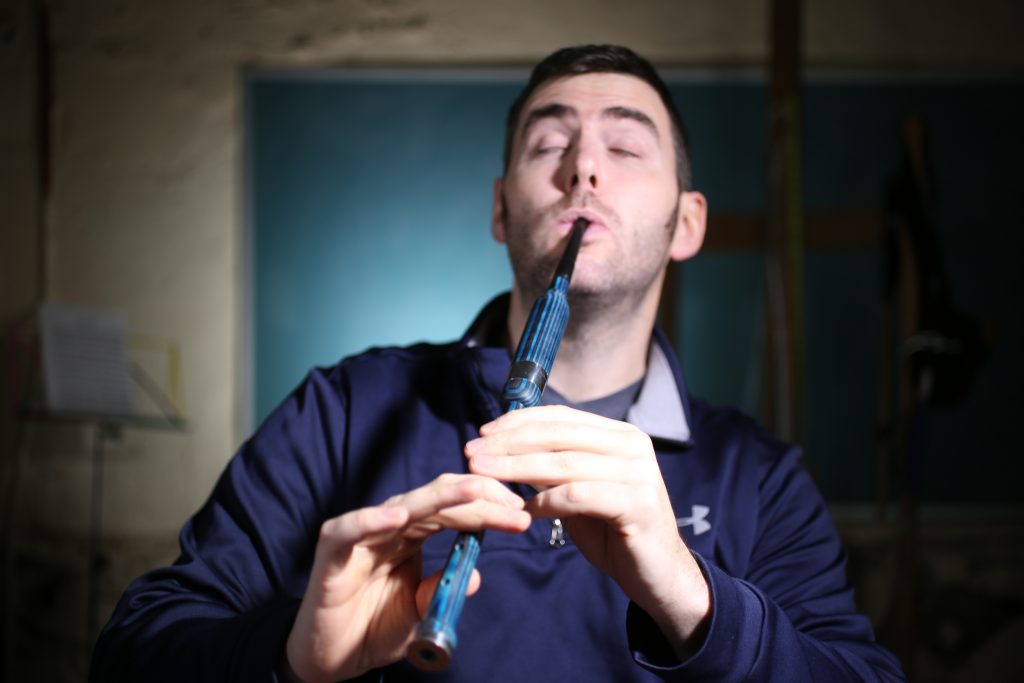How Would You Make Yourself Worse?

We often question what might make us a better player. We look to the greats, pore over books and podcasts and advice columns, soak up advice from lessons and workshops, and try our hardest to focus on the right areas.
But actually, one of the easiest ways to work out how to improve your piping is through inversion.
After all, it's pretty easy to be a terrible piper, isn't it?
So as a bit of a thought experiment – what would you do if you wanted to make someone worse at piping?
First, you'd probably strip away all access to good piping, so they rarely (if ever) listened to any recordings, lectures, podcasts, or any other resources that might give them a clue about what good sounds like.
Then, you might stop them from doing daily practice – instead, maybe you'd just try to cram in a longer practice session the night before your band rehearsal so they'd done juuuuust enough work that your pipe major doesn't yell at them, but certainly not enough to make any meaningful difference to their actual ability.
Next, you'd probably add a bunch of complicated gadgets to their setup – tone enhancers, a moisture control system, a digital tuner, just to really complicate things and make any issues that arise (and trust me, they'll arise) just that much more difficult to assess and fix in the heat of the stressful moment.
Then, you'd probably get them to try to do as many things at once as possible, so they can't focus on any one thing at a time in order to meaningfully improve it. Play with all their drones going and a manometer while they work on a new tune at full speed with all embellishments kept in? Why the heck not?!
Speaking of new tunes, though – to get worse, let's make sure we don't look at any of those. Why bother? People always like the old classics you always play – let's just stick to the simple stuff (and play it poorly anyway). No one likes change!
Next, we're going to always listen to and give subjective feedback like 'blow tone' or 'hold those notes longer' but never use any objective tools like a metronome or recorder to assess them. That would be stressful and might make us uncomfortable and embarrassed! Can't have that...
And as for blowing tone – let's make sure they play the hardest reed possible, a real gut-buster. And play as fast as possible. And with all the embellishments in, while trying to play with expression (whatever that means) – I mean, that's what real pipers do, right?
And let's not try to master any basic bagpiping skills like instrument maintenance, tuning, or fingerwork – what are we, a pipe major? No thank you! Leave that stuff to the experts – let's just show up each week and wait for someone else to help them fix their pipes, or get grumpy when they get exasperated that they haven't maintained our instrument or done any practice.
Ok, ok, I guess we have to do a bit of practice. But let's just get them to run some reps on band sets, all the way through, once, just to get some air going through the thing. And sure, we may not have got the timing right in any of those sets, but what we're really interested in is pulsing. Let's focus on that for a bit...
I think you'd agree these would all contribute to making a pretty terrible piper.
Would you want to play in a band with someone who approached their piping this way?
(Maybe you already do...)
So if starting to slip into these bad habits is how you might go about making a good piper far worse... then the logic follows that if you started to do the opposite of these things, you'd start to get better.
Not necessarily perfect, and definitely not straightaway – but certainly better, over time.
The really insidious thing about sticking to bad piping habits like these is that the more you indulge habits like these, the harder it is to get back into the swing of good practice habits.
And the best way to get started... is to get started!
So let's get started!
Take Action
If you're a Dojo student, you can explore how to realign your mindset for success as part of our 11 Commandments of Mastery course, or browse our many articles and resources about recording on the Dojo U blog.
If you're not yet a Dojo Student, we'd love to welcome you! You can take the 11 Commandments course, which covers the 11 essential mindset tweaks you'll need to prepare yourself for mastery, or explore our monthly membership options and join us as a student, where you can learn more about this topic in a guided way with hundreds of other pipers around the world cheering you on!





Responses